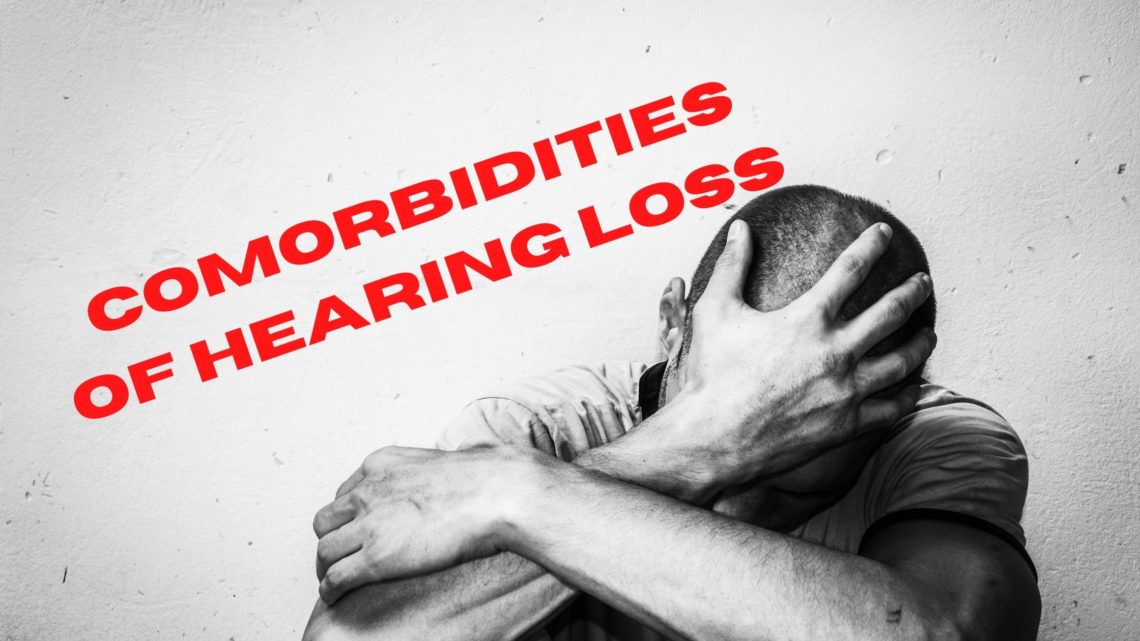Hearing loss is one of the most undertreated chronic health conditions in America today. Untreated hearing loss is often seen as a minor and ignorable health concern, and many people procrastinate when it comes to seeking care for their hearing. Unfortunately, untreated hearing loss is far from benign and often exacerbates a wide range of associated health conditions, known as comorbidities.
Unaddressed hearing issues can significantly depreciate your quality of life. In many cases, hearing loss can also encourage the onset of cognitive difficulties. Research has also connected hearing loss to other chronic health concerns like cardiovascular disease and diabetes. While all of these comorbidities are well-established their connection to hearing loss isn’t always intuitive.
Quality Of Life Decline
One of the most commonly observed comorbidities of untreated hearing loss is a decline in a person’s quality of life. This usually has a direct connection to communication challenges and often manifests as health issues like depression, anxiety and social isolation. Hearing loss can make conversation with others shift from fun to frustrating and can also keep people from enjoying their favorite activities.
Over time, hearing loss can drastically alter a person’s social engagement and behavior. Unaddressed hearing problems can leave a person feeling misunderstood and alienated from those around them. This can cause both a withdrawal from social settings and feelings of depression to develop. Communication can also turn navigating different spaces into a daunting task, provoking anxiety and encouraging decreased mobility.
Cognition
Another major health concern to consider is the way unaddressed hearing issues change our cognitive abilities. Living with hearing loss means that sound information often arrives incomplete. Speech, for instance, often sounds muffled or unclear with some legible sounds but few details. It then falls upon the brain to fill in the “blank spaces” using context clues to try to fill in words that weren’t clear. This takes more time and energy in the brain and the result is slower and less precise hearing comprehension.
Another result is that the act of hearing pulls our attention away from other mental tasks, straining our cognitive resources. In a wide ranging research, subjects with untreated hearing loss demonstrate slower and less accurate cognitive performance when tested against subjects with normal hearing.
Falling Accidents
One of the surprising consequences of cognitive strain is that it limits our ability to balance and maneuver our body. Coordination and balance are both controlled by our cognitive processes. When our attention is diverted away from these critical skills to compensate for hearing issues, our ability to avoid obstacles, orchestrate movements and even balance upright can become far less accurate resulting in a higher risk of accidental falls and injuries.
Dementia
Dementia is the most severe of the common cognitive comorbidities for hearing loss. While the relationship between hearing loss and dementia is not fully understood, research has pointed to the cognitive stress caused by untreated hearing issues as a significant contributing factor to the development of dementia. Greater degrees of hearing loss carry with them greater cognitive strain and greater risk of dementia.
Cardiovascular Disease
Hearing loss can both be an indicator of and be indicated by cardiovascular disease. The conditions often go hand-in-hand, especially in relation to low-frequency hearing loss. While hearing loss usually compromises the ability of the ear to detect high frequencies of sound, people with cardiovascular disease are unusually susceptible to losing their low frequency hearing. When low frequency hearing loss is found, it is often a health signal to also screen for developing cardiovascular issues as well as risk of stroke. People with diagnosed cardiovascular concerns should have their hearing tested regularly with special attention to low frequency impairment.
Diabetes
Another common comorbidity of untreated hearing loss is diabetes. Research has shown that people with diabetes are more than twice as likely to also have hearing loss, when compared to the population without diabetes. Diabetes also may be an indicator of hearing loss that develops in people younger than 60. While hearing loss risk grows exponentially as we age, the onset of hearing loss in diabetics skews younger. While more research is needed to fully understand how hearing loss and diabetes relate to one another, it has been proposed that circulatory issues brought on by diabetes limit blood flow to the tiny structures of the inner ear which can be permanently damaged.
If you have experienced changes in your hearing, it is important to seek a hearing test. Contact us today to schedule an appointment!

